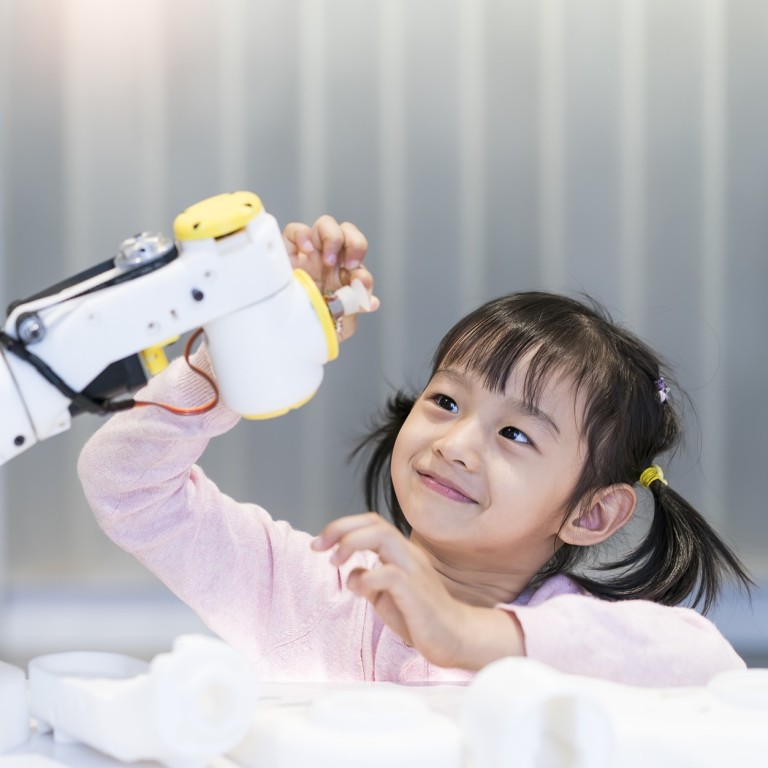Can robots really help get girls into STEM subjects? Singapore’s schools seem to think so

Meet Kibo and Bee-Bot, the robots now rolling around classrooms as part of Singapore’s innovative Playmaker programme, aimed at getting more girls into science, maths and technology
Singapore has poured its limited resources but abundant hope into educating its people since gaining independence. In the years since 1965, Singapore has built a world-class educational system that is considered one of the region’s best.
This island nation consistently leads international rankings – the Programme for International Student Assessment (PISA) estimates that young Singaporean maths students are three years ahead of their contemporaries in the United States. In fact, Singapore achieved the highest PISA marks across the board in 2016.
Education spending usually makes up about 20 per cent of the annual national budget, subsidising state and government-assisted private schools alike. In 2000, a national law criminalised parents who fail to enrol primary school-aged children into school, or maintain regular attendance.
Robots break the gender barrier for small children, before gender norms favour more boys than girls becoming interested in STEM subjects
What Singapore is working to improve

The strict style of teaching in Singapore has traditionally set it apart: Teachers ensure students’ complete a syllabus before allowing them to move on. This allows for a much narrower but deeper recall – the result of which is stunning test results.
However Singapore’s world-recognised educational achievements are not effectively nurturing a future-ready workforce able to take hold of its own economy. Technological disruption is transforming traditional industries, meaning Singapore’s youths must be creative, agile, innovative and flexible to compete.
But the nation’s rigid testing and grading system is discouraging young innovators and producing extraordinary and rather mechanised test-takers, preparing for jobs that are not relevant to the future. Rote learning and memorisation is no longer serving students well enough.
Change is in order
Singapore has now embarked on its Smart Nation initiative, which strives to adopt smart technologies for an economy powered by digital innovation. The Ministry of Education has initiated sweeping reforms for primary and secondary school students, including removing all exams for first and second year students and adding wider scoring bands for the Primary School Leaving Examination (PSLE). The goal is to reintroduce the joy of discovery and individual thinking to learning.
Bring in the robots







